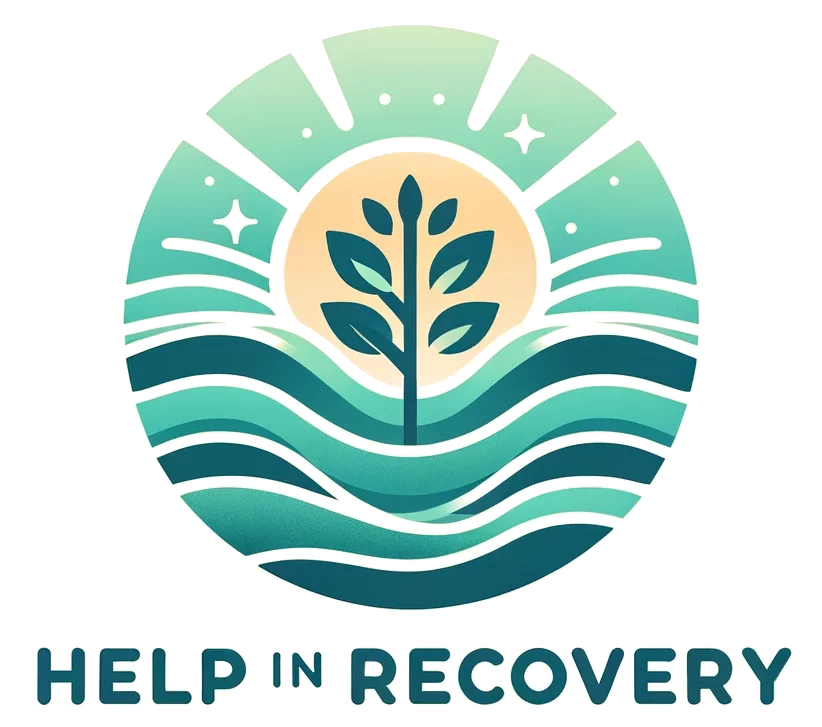Why Certification Matters: Choosing the Right Recovery Coach
Introduction
In the journey of recovery from addiction, a guiding hand can make all the difference. Recovery coaching has emerged as a beacon of hope, offering support and direction to those navigating the choppy waters of addiction recovery. But not all coaches are created equal. Is a recovery coaching certification necessary? If it is, what should I look out for? For our comprehensive guide to Recovery Coaching, visit our post.
Imagine embarking on a voyage across unknown seas. Would you trust a captain who knows the waters well or someone just holding a map for the first time? This is where the importance of choosing a certified recovery coach shines through. Certification isn’t just a piece of paper; it’s a promise of quality, a reassurance that the coach has the skills and knowledge to guide you effectively.
Our focus is to highlight why selecting a certified recovery coach is crucial. It’s not just about having someone to talk to but having someone who can chart the course to recovery with expertise and understanding. We’re here to explore how professional certification elevates the standard of coaching and why it’s an essential factor in your choice of a recovery coach.
In the following sections, we’ll dive deeper into recovery coaching certification, helping you understand its value, what to look for, and how it impacts the journey to a balanced and healthy life.
Key Takeaways
| Aspect | Key Points |
|---|---|
| Importance of Certification | Certification ensures quality and expertise in recovery coaching. |
| Credibility and Standards | Certified coaches have comprehensive training in addiction and recovery. |
| Building Trust | Certification helps in building trust between coach and client. |
| Specialized Skills | Certified coaches are trained in specific recovery techniques and approaches. |
| Continuous Learning | Ongoing development is crucial to stay updated with the latest in recovery coaching. |
| Personal Experience | Many coaches bring personal recovery experiences, adding depth to their coaching. |
| Choosing the Right Coach | Look for matching expertise, personal connection, trust, and comfort in a coach. |
| Long-Term Impact | Certified coaches play a vital role in supporting long-term recovery and resilience. |
The Value of Professional Recovery Coaching Certification
Professional certification in recovery coaching is like getting a badge of trust and quality. It shows that a coach isn’t just friendly, but also knows exactly what they’re doing to help people in their recovery journey.
Credibility and High Standards
A certified coach has spent a lot of time learning about addiction and recovery. They understand how people recover and the best practices to support someone. Imagine them as expert guides equipped with the proper knowledge and skills to lead you through your journey.
Building Trust
Knowing your coach is certified makes it easier to trust them. It’s similar to feeling more confident with a driving instructor with the right qualifications. This trust is essential because it allows you to open up, share your experiences, and engage in recovery.
Specialised Skills for Recovery
Certified coaches learn specific skills that are crucial for recovery. This includes understanding how change happens, ways to motivate people, and strategies to prevent relapse. They tailor their approach to suit each person’s needs, knowing that recovery is a personal journey.
Compassion and Understanding
A big part of a certified coach’s training is about being compassionate and maintaining confidentiality. They create a safe space to share your struggles without fear of judgment. This level of understanding and empathy makes them more than just a coach; they become dependable allies.
Continuous Learning and Growth
The world of addiction recovery is constantly evolving. New findings and methods come up regularly. Certified coaches keep up with these changes through continuous learning. This ensures they always offer up-to-date support. They continue learning once certified; their education is ongoing, improving their ability to help others.
Adaptability in Coaching
Certified recovery coaches are trained to adapt their methods to the changing needs of those they’re helping. They understand that recovery isn’t a straight path and are equipped to handle the ups and downs that come with it.
The Role of a Certified Coach
A certified coach plays a crucial role in your recovery. They use their training and knowledge to guide you, giving you the proper support at the right time. They’re like a trusted companion on your journey to recovery.
Conclusion
Having a certified recovery coach is incredibly important. They are not just any coach; they are individuals dedicated to supporting and guiding people towards a healthier life. Their expertise, trustworthiness, and continuous improvement help make the path to recovery more transparent and more manageable.

What to Look for in Recovery Coaching Certification
Choosing the proper recovery coach certification is like picking the right tools for an essential job. It’s crucial to know what makes a certification excellent and trustworthy.
Different Types of Certifications
There are many kinds of recovery coach certifications. Some focus on addiction, others on mental health or life coaching. It’s like choosing a tool – you need the right one for the job. Look for certifications specifically about recovery coaching, as they will be the most useful for this field.
Recognised and Respected Programs
Professional bodies should recognise a suitable certification. This is like getting a stamp of approval from experts. Programs like the International Association of Professional Recovery Coaches (IAPRC) and CCAR Recovery Coach Academy are well-known and respected. They ensure the coach has learned from a program that meets high standards.
Training Content is Key
What the certification teaches is super important. It should cover topics like how to support someone in recovery, understanding addiction, and ways to motivate and guide people. Good programs don’t just give book knowledge; they also include practical skills and real-world scenarios.
Check the Coach’s Background
When looking for a coach, check their background. See if they have experience in areas related to recovery and if they’ve used their certification to help others. It’s like checking a driver’s track record – you want someone good at navigating the road.
Accreditation Matters
Accreditation is another crucial aspect. It’s a sign that the certification follows high-quality standards a governing body sets. It’s like choosing a product that has a quality guarantee. Look for certifications accredited by organisations like the ICF (International Coaching Federation).
Duration and Depth of the Program
The length and depth of the training matter, too. A good program isn’t rushed; it takes enough time to cover all necessary topics thoroughly. It’s like learning to cook – you can’t become a chef in a day.
Continuous Education
Lastly, see if the program encourages ongoing learning. Recovery coaching constantly evolves, so coaches must keep up with new developments. It’s like staying updated with any profession’s latest tools and techniques.
Conclusion
Choosing the proper certification for a recovery coach is a big decision. Look for well-recognised programs that cover all necessary topics and encourage continuous learning. This ensures you get a coach who’s trained and equipped to handle the complexities of recovery coaching.
| Certification Program | Organizing Body | Focus/Area | Course Length | Cost | Accreditation | Suitability |
|---|---|---|---|---|---|---|
| Certified Professional Recovery Coach (CPRC) | International Association of Professional Recovery Coaches (IAPRC) | Addiction Recovery | Self-paced | $4,497 – $5,097 | ICF, NAADAC, Florida Dept. of Health Licensure Board | Aspiring and experienced coaches |
| Recovery Coach Training | The Academy for Addiction Professionals | Recovery and Coaching Foundations | 30 hours | Available upon request | NAADAC, FCB | Beginners |
| CCAR Recovery Coach Academy | Connecticut Community for Addiction Recovery (CCAR) | Innovative approaches to recovery coaching | 5 days | $625 + $50 for manual | ASAP NYCB, OASAS | General recovery coaching |
| Certified Addiction Recovery Coach (CAC) | World Coach Institute | Addiction Recovery and Business Development | 2 – 8 weeks | $997 – $3,247 | ICF, BCC | Coaches focusing on business development |
| Professional Life Coach Certification | Transformation Academy | Health, Psychology, Recovery Coaching | Self-paced | $197 (discount available) | CPD | Budget-friendly option |
Beyond Certification: Continuous Professional Development
Having a certification is just the start. For recovery coaches, growing and learning continuously is like keeping their tools sharp and ready.
Why Ongoing Learning Matters
The world of recovery is constantly changing. New ideas and methods keep coming up. Coaches need to stay in the know, like a doctor keeping up with new medicines and treatments. This means they can always offer the best help.
Advanced Training
After getting certified, the best coaches continue learning. They go for more training. This might be in new ways to help people understand deeper issues or even learn about the latest research. It’s like an athlete who keeps training to stay in top form.
Conferences and Workshops
Coaches often attend workshops and conferences. This is where they meet other experts, share ideas, and learn from each other. It’s like going to a big gathering of the best minds in the field.
Personal Experience Counts
A coach’s own experience is a prominent teacher. Many coaches have been through recovery themselves or have helped others. Each experience adds to their knowledge, improving their work even better.
Peer Groups and Mentoring
Being part of peer groups or having a mentor is another way coaches keep developing. They can share challenges, get advice, and learn from those who have been coaching longer. It’s like having a team where everyone helps each other to be better.
Self-Care and Reflection
Coaches also learn by looking after themselves and reflecting on their work. They think about what went well and what could be better. They need to be in good shape mentally and emotionally so they can be there fully for the people they help.
Continuous Development Benefits Everyone
When a coach keeps growing and learning, everyone benefits. The people they help get the latest and best support. The coaches themselves feel fulfilled and stay passionate about their work.
Conclusion
Continuous professional development is a vital part of being a great recovery coach. It’s about more than just getting a certificate; it’s a commitment to always be learning and improving. This way, coaches can give the best support to those on their recovery journey.
The Real-World Impact of Certified Coaches
Certified recovery coaches make a real difference in the lives of those they help. Their impact goes beyond just giving advice; they change lives.
Case Studies and Testimonials
Hearing stories from people who certified coaches have helped shows their impact. It’s like reading reviews before you buy something. These stories often talk about how coaches helped them find new ways to cope and stay on track with their recovery.
Understanding Addiction Recovery
Certified coaches have a deep understanding of addiction recovery. They know it’s about stopping a habit and changing a life. Their training lets them guide people through this complex journey with care and skill.
Personal Experience Adds Value
Many coaches have personal experience with recovery. This helps them understand what someone is going through. It’s like having a guide who’s been on the same path. They can share their own stories and show that recovery is possible.
A Coach’s Approach
Every coach has their way of helping. Some might use activities, while others focus on talking and listening. The best coaches mix different methods to suit each person’s needs. It’s like a teacher who uses different ways to help students learn.
Building Confidence and Resilience
Coaches help people build confidence and resilience. This means helping their clients see their strengths and find ways to face challenges. It’s like giving someone the tools they need to fix things independently.
Long-Term Support
Recovery is a long journey, and coaches are there for the long haul. They support people not just at the start but as they keep going, facing new challenges and keeping up their progress.
Conclusion
Certified recovery coaches make a huge difference in the real world. Their training, experience and personal touch help people rebuild their lives and stay strong in their recovery journey. It’s about more than just advice; it’s about guiding someone to a better future.
Making an Informed Decision
Choosing the proper recovery coach is a big decision. Finding someone who matches your needs and makes you feel comfortable is essential.
Matching Expertise to Your Needs
Different coaches have different strengths. Some might be great at dealing with certain types of addiction, while others are better at handling emotional challenges. It’s like finding a teacher suitable for the subject you need help with.
The Importance of Personal Connection
Feeling comfortable with your coach is vital. You should be able to talk openly with them and feel like they understand you. It’s like having a friend there to guide and support you.
Trust and Rapport
Trust is essential. It would help to trust your coach with your thoughts and feelings. Building a good relationship, or rapport, with your coach helps smooth recovery.
Checking Credentials and Testimonials
Always check a coach’s credentials and look for testimonials from others they’ve helped. This is like checking references for a job – you want to know they’re good at what they do.
Meeting Before Deciding
Let’s meet with a coach before deciding. This lets you see if you feel comfortable with them and their style suits you. It’s like trying out a new activity before you commit to it.
Conclusion
Making an informed decision about your recovery coach is vital. It’s about finding someone with the right skills, who you feel comfortable with, and who you can trust. Take your time to choose the right person, as they will be a big part of your recovery journey.
Conclusion
Choosing the proper recovery coach is a journey in itself. With their training and real-world experience, certified coaches play a crucial role in guiding individuals through recovery. They’re not just there to talk; they bring skills, knowledge, and understanding that can make a huge difference.
Remember, recovery is a personal journey; having the right coach can light the way. They help you navigate challenges, build strength, and find your path to a balanced life. Their continuous learning and dedication mean they can always offer the best support.
In summary, certification matters in recovery coaching. It signifies a coach’s commitment to their work and clients. When choosing a coach, consider their certification, ongoing development, and how well they connect with you. The right coach can turn the journey of recovery into a transformation journey.
So, take your time, research, and choose a qualified and suitable coach. It’s one of the most important steps you can take on your path to recovery.







